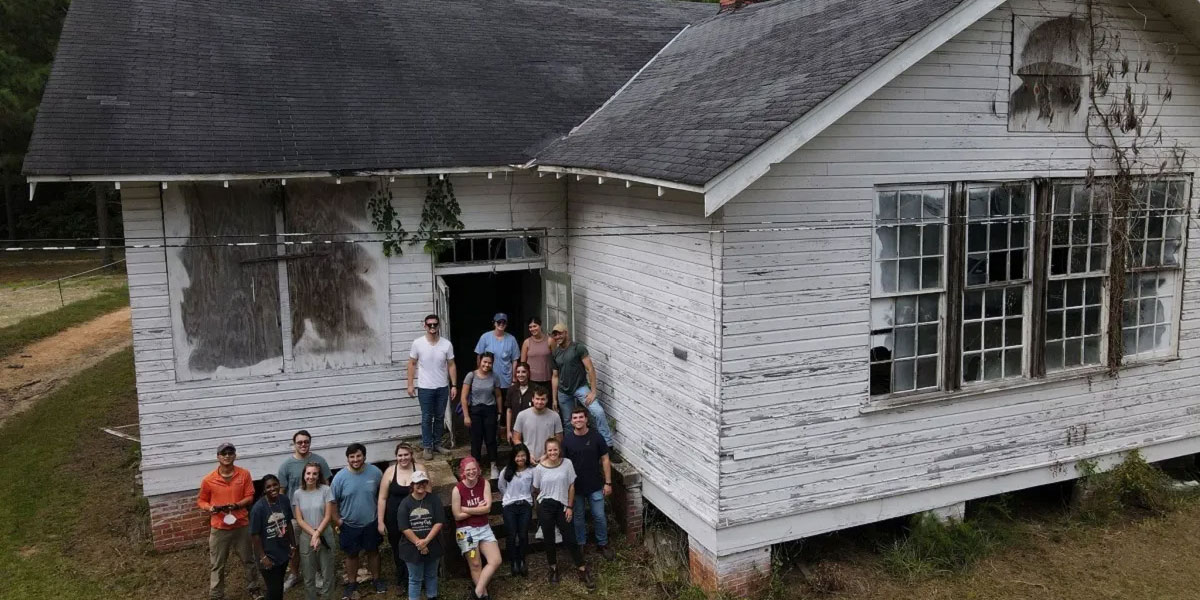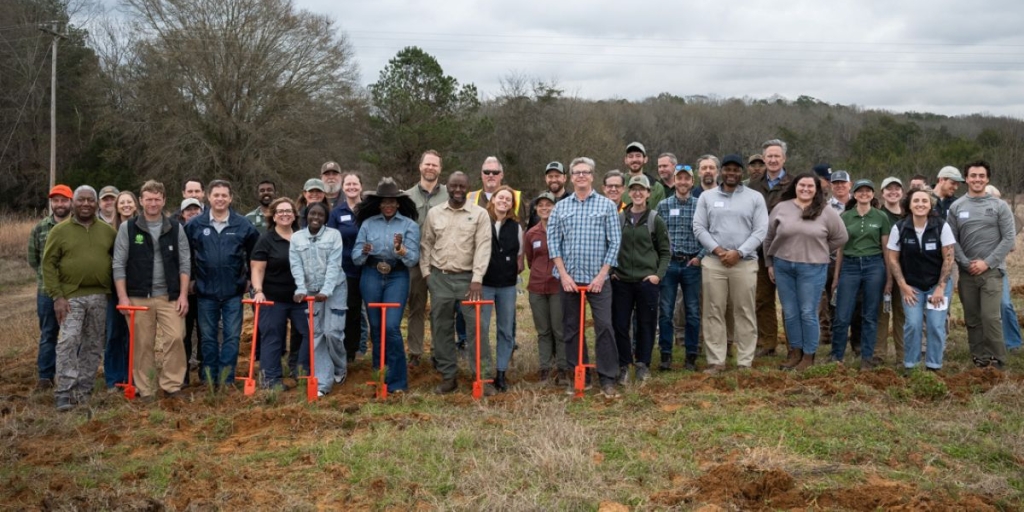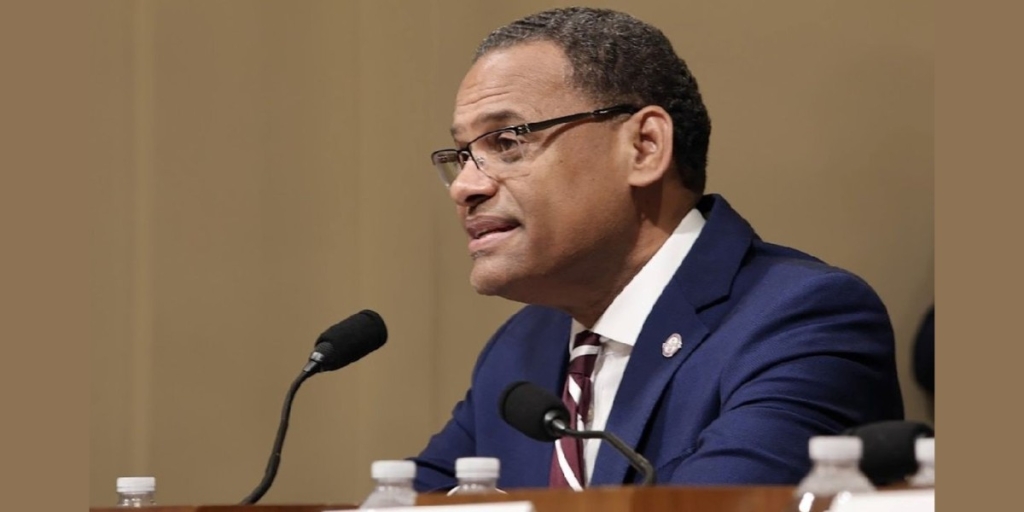Researchers in Auburn University’s College of Architecture, Design and Construction (CADC) and College of Liberal Arts recently received grants from the National Park Service (NPS) to further their efforts to document and preserve African American and civil rights history.
A team of faculty from CADC, including Gorham Bird, Junshan Liu, Hunter McGonagill and Richard Burt, is overseeing a restoration and preservation project throughout Alabama focusing on Rosenwald Schools — nearly 400 schools built in Alabama between 1912 and 1932 to serve as educational facilities for African American children. The team’s research efforts received $499,799 in NPS funds for the stabilization and exterior rehabilitation of the Tankersley Rosenwald School in Hope Hull.
“Our team is thrilled and honored to have the support of the National Park Service through the African American Civil Rights Grant Program,” Bird said. “This award highlights the need to preserve sites that contribute to the full American story, particularly Rosenwald Schools of the rural segregated South. This grant enables our team to provide preservation expertise to a rural nonprofit organization for the stabilization and rehabilitation of the shuttered Tankersley Rosenwald School in Hope Hull, Alabama.”
The Tankersley school has been vacant for decades, but more recently has been at risk of collapse due to water intrusion that has led to structural failure. The scope of the project includes working with a preservation contractor to stabilize the building, complete a Historic Structures Report and develop a preservation scope of work for rehabilitation of the exterior of the historic building. The CADC team will be supported in that work by professors Keith Hébert and Elijah Gaddis from the College of Liberal Arts and Danielle Willkens from the Georgia Institute of Technology.

The African American Civil Rights grants, which total more than $16.2 million, will benefit 44 projects in 15 states and support preservation of sites and history related to the African American struggle for equality. This project is supported through an African American Civil Rights grant, provided by the Historic Preservation Fund, as administered by the NPS, Department of Interior.
In addition, an Auburn-led project titled “Memory and the March: Oral Histories with Selma’s Foot Soldiers,” headed by Hébert and Gaddis from the Department of History, received $46,588 in funding from the NPS.
“The National Park Service has recommitted its resources to identify, preserve and interpret resources connected to the nation’s African American history in a profound way that greatly expands the ability of Black rural community partners to collaborate with institutions such as Auburn University to transform how our nation remembers its tumultuous past while reflecting on how best to move forward in a time of great change,” Hébert said. “By elevating the stories of Rosenwald School buildings and Bloody Sunday’s foot soldiers, these projects will enhance our nation’s understanding of how Black Alabamians have historically challenged the racially segregated social order to build vibrant communities and stake their claim to fulfilling a vision of a more perfect and equitable union.”
Congress appropriated funding for the African American Civil Rights Grant Program in fiscal 2021 through the Historic Preservation Fund (HPF). The HPF uses revenue from federal oil and gas leases on the Outer Continental Shelf, assisting with a broad range of preservation projects without expending tax dollars, with the intent to mitigate the loss of a nonrenewable resource to benefit the preservation of other irreplaceable resources.
Established in 1977, the HPF is authorized at $150 million per year through 2023 and has provided more than $2.7 billion in historic preservation grants to states, Tribes, local governments and nonprofit organizations. Administered by the NPS, HPF funds may be appropriated by Congress to support a variety of historic preservation projects to help preserve the nation’s cultural resources.
Learn more about NPS historic preservation programs and grants.
This story originally appeared on Auburn University’s website.
(Courtesy of Alabama NewsCenter)













